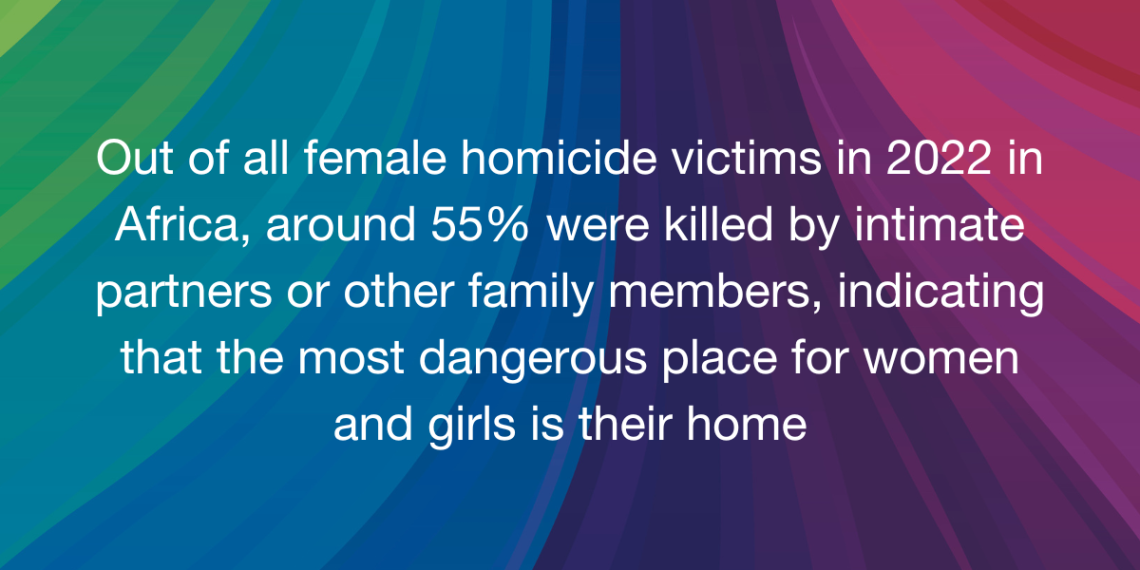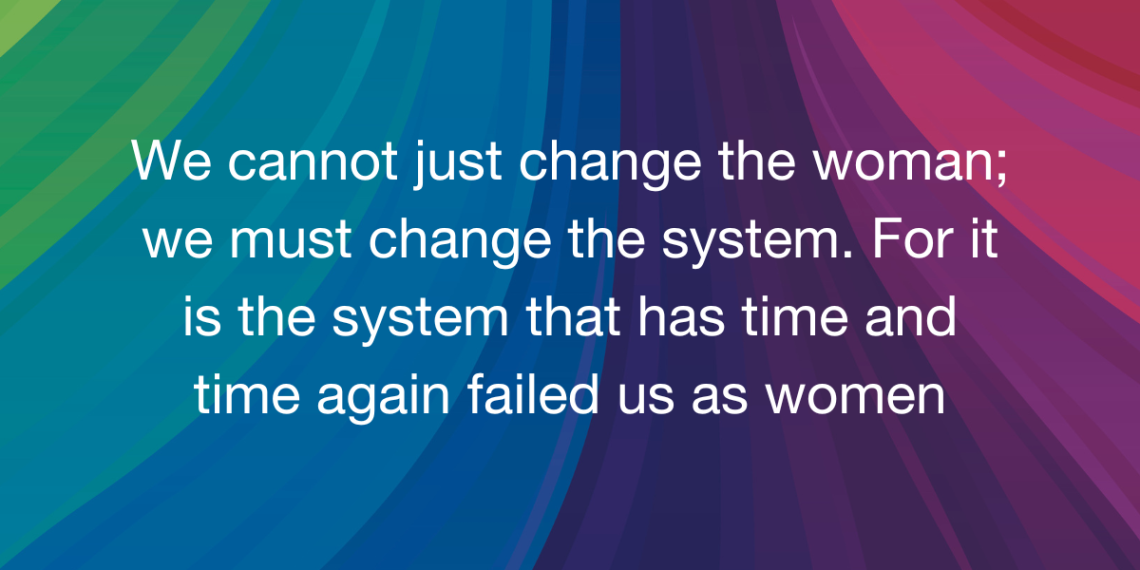Make your 2X MATCHED gift today!
This week only: Every $1 will be matched with $2 to enable women worldwide.
This week only: Every $1 will be matched with $2 to enable women worldwide.
Posted on 09/19/2024
Two weeks ago, I awoke to the news of Rebecca Cheptegei’s death at the hands of her partner. Cheptegei was a Ugandan long-distance runner who had just recently competed at the Paris Olympics. She was 33. My first thought was, “Not another one.”
For those of you who don’t know me, I was born in Rwanda during the 1994 genocide and spent the first three years of my life in Kenya as a refugee. Fast forward some fifteen years later after a few years in Eswatini, my family now finds itself back in East Africa, a region I consider to be home. Economically, the region has seen an upward rise in GDP over the last few years across its thirteen countries. And though many areas have seen tremendous growth across the board, the issue of Gender-Based Violence (GBV) has not. According to the UN, whilst other continents have seen a decline in GBV cases, Africa has seen a significant increase in cases.
Cases spotlighted by the media showcase that GBV is rampant across the world. Agnes Jebet Tirop, 25, a rising running star in Kenya was stabbed to death in 2021 by her husband in her own home; Damaris Muthee Mutua, 28, was found strangled in 2022 in Iten, Kenya, a town known to house competitive Kenyan runners; and now, Rebecca Cheptegei. These women are only three among an estimated 20,000 femicide victims in 2022, in Africa alone. If this is happening in urban areas, then ask yourself, what is happening in rural areas where women have no voice or say in their day-to-day lives?
According to the UN’s 2023 Femicide Report, “Out of all female homicide victims in 2022 in Africa, around 55% were killed by intimate partners or other family members, indicating that the most dangerous place for women and girls is their home.” Let that sink in for a moment. The most dangerous place for a woman or young girl is her home. And if we aren’t safe in our own sanctuaries, is there any place that is?
When I first joined Grameen Foundation last year, our work was centered on giving women the access and tools they need to take care of themselves, their families, and their communities. We equipped them with the training and skills they needed to generate an income, increase agency, and become more resilient. Over the last year, our work has expanded past those three outcomes and is now focused on changing the system, not the woman. But even through our work, a key piece was always overlooked and missing, until now.
As GBV rates increased around the world, we realized that though the women we have served may not have been direct victims, the potential of this was high.
When women gain access to financial services to pursue income-generating activities, their male partners’ own standing as primary breadwinners will be jeopardized as evidenced by Tirop, Mutua, and Cheptegei. Men often have expectations of women’s household responsibilities they are not willing to let go of and enjoy most of the household decision-making power. As a result, men may be disinclined to support women’s income-generating work and may respond with violence against women if the stress is too high. Without addressing and transforming these harmful gender norms, efforts to invest in the power of women in Africa and across the globe will be thwarted.
Grameen proactively engages male family members of women we work with through transformative Intra Household Dialogues (IHD), to alter men’s understanding and attitudes regarding women's economic power. This strategy is designed to reshape cultural norms, facilitating an increase in women’s economic participation and understanding how this benefits both men and the entire family. In Grameen’s approach, men are invited to join group dialogues with other men and/or their partners. Facilitated discussion by community-based facilitators (‘agents’), complemented by other behavior change messaging, enables men to discuss alternatives, brainstorm solutions, and break down self-imposed expectations that aren’t serving them or their families. These conversations are disseminated by local financial service providers, civil society organizations, and other partners who enjoy trusted relationships with communities, as well as established networks of community-based agents who are well-positioned to open dialogues with men about their potential to champion the women in their lives.

Getting men involved at home can have a huge impact, leading to healthier families and stronger financial futures. It’s not just important—it’s essential—for programs focused on everything from women’s financial empowerment to improving maternal health. But here’s the challenge: getting men engaged isn’t always easy. There are so many cultural and economic barriers that stand in the way, and they need to be broken down step by step, often through small group discussions and meaningful conversations that speak to local customs and realities.
That’s where Grameen’s Male Champion Initiative comes in. We’re working to shift mindsets and help men become true advocates for women’s success. The program doesn’t just talk about inequality, it shows men how they can make a difference. These conversations dig deep into how gender dynamics play out in their communities and teach practical ways for men to support the women in their lives—whether that’s at home, in business, or their communities.
It’s about changing the way men see and treat women, opening their eyes to the power women can unlock when they’re given the support they deserve. We work with trusted local leaders to guide these conversations, making sure everyone involved—especially men—is on board with lifting women up. And through our “Do No Harm” approach, we ensure that in helping women rise, we’re not causing any unintended harm. The goal is to create lasting change, and that means making sure men are right there at the table, every step of the way.

Grameen’s Intrahousehold Dialogues (IHDs) have made a real difference in helping women break free from poverty and grow their businesses in places like West Africa, Central America, and Asia. By sitting down with families and getting them to talk openly about financial inclusion, we’re seeing powerful changes. Women gain the confidence and freedom to use financial services to grow their businesses—without worrying about any pushback from men. The entire household benefits, becoming more united and supportive.
When men start to see that when women are enabled to use financial resources, the whole family thrives. Additionally, when men participate in these dialogues alongside other couples, they see firsthand how other men are changing their attitudes, creating a positive ripple effect that makes them more open to change, too.
An example of this success is through Vincent and his wife Patience, from Northern Ghana, who were trapped in poverty and marital tension until they joined two household dialogue workshops by Grameen Foundation. Vincent remarked, "Communication has significantly improved. I'm now happy to assist with domestic chores." Recognizing his wife's burdens, Vincent now dedicates 1-2 hours a day to helping with childcare and household tasks, allowing Patience to focus on her business. He added, "Having an additional income source for our household has made a tremendous difference." With better communication and shared responsibilities, they now work together harmoniously toward their goals.
Vincent and Patience are just one of thousands of couples Grameen has worked with to ensure that not only was there support for Vincent in shifting his cultural beliefs about women, but that Patience was also supported by her husband, family, and community and can now contribute to her family’s financial wellbeing without fear of being a victim of GBV.
Our Intrahousehold Dialogues are just the first step in ensuring that women have the tools, resources, and skills they need to generate an income, increase agency, and be resilient. Not only is it the first step in our HER Framework, designed to eradicate poverty through sustainable development, but it is by far the most important step to ensure her safety and success in building a world where her power knows no limits.
I fear that even with these interventions and prevention measures we consciously take to protect the women we work with; it will not be enough. We seek to eradicate poverty, but more times than not, we underestimate the role that cultural norms and beliefs have played in stunting a woman’s growth and development both personally and professionally. We cannot just change the woman; we must change the system. For it is the system that has time and time again failed us as women.
As an East African woman living and working in Chicago, my heart goes out to my fellow African women who fight for a safe place to call home; to the women in South and Central America who give up their lives daily so their children can have a better future; for the women in Asia who work tirelessly to have even the sliver of agency in their lives; for the women in North America and Europe who have made tremendous strides in the fight for equality but continue to work twice as hard to be recognized; and for those women who have shamelessly lost their lives at the hands of those they chose to build a life with, for Agnes Jebet Tirop, Damaris Muthee Mutua, and Rebecca Cheptegei, for those who came before, and those who will inadvertently come after if we don’t do more.
